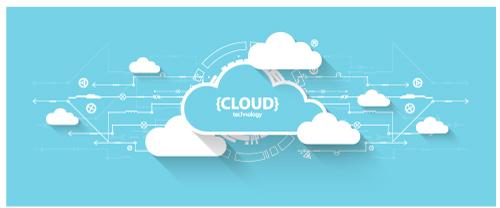Today, many applications run just fine in the cloud, Microsoft 365 and Salesforce being two great examples. However, some don’t because they are sensitive to latency between desktop clients and database servers requiring an on premise configuration, many ERP applications are a perfect example of this. So how do firms take advantage of the Cloud and its inherent benefits like being able to access any Cloud application from any Smartphone or Computer that is connected to the internet? Hybrid IT solutions provide the answer.
A Hybrid IT solution combines Cloud Servers, Cloud Applications (e.g.Microsoft 365, Salesforce) and On-Premise compute power to optimize technology and reduce IT spend. It takes advantage of the scale that Cloud can offer, reduces spend and ensures maximized performance. Importantly, these hybrid implementations must employ controls, trust, compliance, and backup up and down the stack using standardization and automation wherever possible. Backup, especially, is vitally important, for all applications and data whether in the Cloud or on site.
For example, the ubiquitous Microsoft 365 solution itself provides protection against loss of service due to hardware failure or a disruption like power loss and short-term protection against user error. However, Microsoft and most other Cloud application providers, do not provide protection against accidental deletion, hackers, ransomware and malware, malicious insiders and departing employees. In fact, Microsoft recommends third party backup in the Service Availability section of its Services Agreement.
“We recommend that you regularly backup your Content and Data that you store on the Services using Third-Party Apps and Services.”
Companies like Datto, Veeam and Zerto offer excellent solutions for comprehensive and granular backup and disaster recovery. Sold through IT Managed Service Providers (MSPs), these solutions are typically managed by the MSP and automated to meet client requirements. Backup as a Service and Disaster Recovery as a Service are recognized as vitally important requirements today for all businesses and organizations and provide protection against cybersecurity threats.
In summary, as Forbes stated repeatedly, “Cloud when, not if”. Almost every business and organization today use Cloud in some manner. In and of itself, Cloud, like computing and storage is complicated and complex. A hybrid solution, that mixes Cloud Servers, Cloud Applications and On-Premise compute power requires management and backup to realize cost saving, optimize IT performance and remain secure.
Our Managed IT solutions are a perfect fit for organizations looking to begin their Cloud journey but aren’t sure how.


